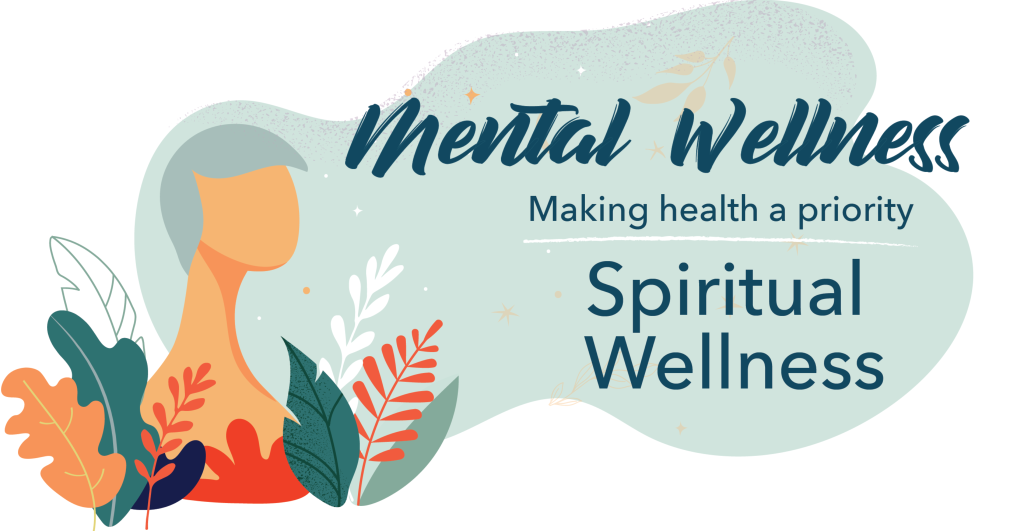Nurturing the Mind and Soul: The Transformative Impact of Spirituality on Mental Health

In an era marked by the relentless pursuit of success and material gain, the significance of spirituality in nurturing mental health has garnered increasing attention. Beyond the confines of scientific therapies, spirituality offers a unique and profound avenue for individuals to find solace, purpose, and resilience amidst life’s challenges. This essay delves into the transformative impact of spirituality on mental health, exploring its mechanisms, benefits, and its role in holistic well-being.
A Path to Inner Harmony: Spiritual Connection and Mental Well-being
Spirituality encompasses the connection between individuals and something greater than themselves, be it a divine force, the universe, or a collective consciousness. This connection serves as a foundation for inner harmony, promoting feelings of belonging, purpose, and interconnectedness. The embrace of spiritual practices like meditation, prayer, and mindfulness allows individuals to cultivate a state of mindfulness that counteracts the tumultuous nature of modern life. This heightened awareness fosters emotional regulation, reducing stress, anxiety, and depressive symptoms.
Coping Mechanism and Resilience: Spirituality in Adversity
Spirituality provides a profound coping mechanism in the face of adversity. It equips individuals with a framework to make sense of challenges, offering a lens through which suffering gains meaning and purpose. The belief in a higher power or a cosmic order can foster acceptance and resilience, enabling individuals to endure hardship with a sense of hope. Spiritual communities also act as networks of support, offering compassion and understanding during times of crisis.
The Science Behind the Serenity: Neurobiology and Spirituality
The impact of spirituality on mental health extends into the realm of neurobiology. Scientific research has shown that engaging in spiritual practices triggers the release of neurochemicals associated with well-being, such as serotonin and dopamine. These practices induce a relaxation response, lowering heart rate, blood pressure, and cortisol levels. Additionally, the sense of purpose derived from spirituality activates brain regions associated with reward and positive emotions. Thus, spirituality has a tangible physiological impact on mental health.
Challenges and Caution: Addressing Potential Pitfalls
While spirituality has transformative potential, it is important to address potential challenges. In some cases, rigid religious dogma or extremist interpretations of spirituality can contribute to guilt, shame, and psychological distress. Moreover, individuals experiencing severe mental health conditions may require professional medical interventions in addition to spiritual practices. An integrated approach that combines spirituality with evidence-based therapies is crucial for balanced mental well-being.
Cultivating Mindful Awareness: Spirituality in Modern Psychology
Modern psychology has recognized the value of spirituality in mental health. Mindfulness-based therapies, which integrate spiritual principles with cognitive-behavioral techniques, have gained traction. Mindfulness encourages individuals to engage in present-moment awareness, grounding them in the here and now. By infusing spirituality into psychological interventions, therapists tap into the transformative power of spiritual practices to enhance emotional regulation and overall mental well-being.
A Holistic Tapestry: Weaving Spirituality and Mental Health
The impact of spirituality on mental health is a profound journey that intertwines the realms of the mind and soul. Spirituality offers a unique framework for individuals to navigate the complexities of life, nurturing resilience, acceptance, and inner harmony. Its effects are rooted in neurobiology, psychology, and the timeless wisdom of spiritual practices. While challenges exist, an integrated approach that acknowledges both the transformative potential and the complexities of spirituality is key. As we weave the threads of spirituality into the tapestry of mental health, we recognize the power of holistic well-being and the intrinsic connection between mind, body, and soul.

The Healing Power of the Soul: Spirituality’s Impact on Mental Health
In the landscape of mental health, spirituality stands as a beacon of hope and healing, offering a profound avenue for individuals to navigate the challenges of the mind. As society grapples with the complexities of modern life, the transformative impact of spirituality on mental well-being becomes increasingly evident. This essay delves into the ways in which spirituality enhances mental health, exploring its role as a source of resilience, meaning, and transcendence.
Spirituality as a Source of Resilience: Navigating Life’s Storms
Life’s journey is replete with trials and tribulations, and spirituality provides a source of resilience that enables individuals to weather these storms. The belief in a higher power or a divine plan instills a sense of meaning even in the face of adversity. This sense of meaning, in turn, fosters emotional stability and psychological fortitude. Through prayer, meditation, or engaging in rituals, individuals find a sanctuary that bolsters their capacity to cope with stress, trauma, and emotional distress.
Finding Meaning in the Mundane: Spirituality’s Role in Existential Fulfillment
Spirituality breathes life into the pursuit of meaning and purpose, serving as a compass that guides individuals through the labyrinth of existence. The connection to something greater than oneself lends depth and significance to life’s experiences, whether monumental or mundane. By engaging in practices that nurture the soul, such as contemplation, gratitude, and acts of kindness, individuals find a wellspring of fulfillment that transcends material achievements. This profound sense of purpose acts as a buffer against the existential void that can contribute to mental health challenges.
Transcendence and Inner Peace: Spirituality’s Calming Embrace
The frenetic pace of modern life often leaves individuals grappling with stress, anxiety, and a sense of disconnect. Spirituality’s impact on mental health is evidenced by its ability to cultivate inner peace through practices that induce transcendence. Meditation, mindfulness, and connecting with nature facilitate a shift in consciousness that brings individuals into the present moment. In this state of mindfulness, the noise of worries and anxieties quiets down, making space for tranquility and emotional equilibrium.
The Unseen Hand of Community: Spirituality’s Social Support
Spiritual communities play a pivotal role in mental health, providing a network of support and belonging. The bonds formed within these communities create a safety net, allowing individuals to share their burdens and seek solace in times of need. Rituals, prayers, and communal gatherings foster a sense of unity that combats feelings of isolation and loneliness, which are detrimental to mental well-being.
Navigating the Paradox: Acceptance and Growth
While spirituality holds immense potential for mental well-being, a delicate balance must be struck. The journey into spirituality is often marked by paradoxes—embracing acceptance while seeking growth, finding solace in surrender, and nurturing humility in the face of the divine. This delicate dance encourages individuals to explore the depths of their beliefs, challenge their assumptions, and evolve in their understanding of themselves and the cosmos.
The Confluence of Faith and Mind: Fostering Integration
Spirituality and mental health are interconnected aspects of the human experience. Modern psychology has recognized the therapeutic potential of spirituality, leading to the development of spiritually-integrated therapies. These approaches acknowledge that mental health is not confined to the realm of the mind alone; it is influenced by the interplay between the mental, emotional, and spiritual dimensions. By integrating spirituality into therapeutic interventions, professionals tap into a holistic source of healing that addresses the profound yearnings of the soul.
Conclusion: The Symphony of Healing
In the grand symphony of life, spirituality’s impact on mental health is a poignant melody that resonates with the deepest chords of the human experience. Through the tapestry of spiritual practices, connections with the divine, and the nurturing embrace of community, individuals find healing, purpose, and the strength to navigate the intricate landscapes of the mind. As we acknowledge spirituality’s role in mental well-being, we recognize its transformative power to mend the soul and mend the mind, fostering a harmonious symphony of holistic healing.
